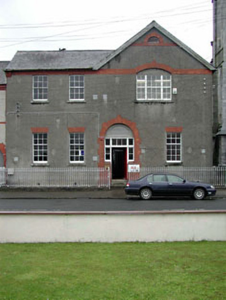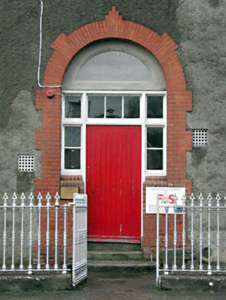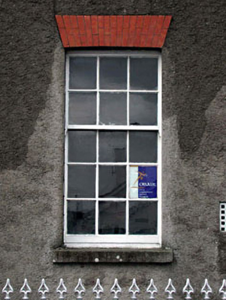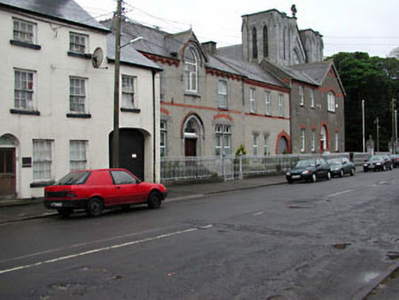Survey Data
Reg No
11816082
Rating
Regional
Categories of Special Interest
Architectural, Historical, Social
Original Use
School
In Use As
Community centre
Date
1900 - 1910
Coordinates
262588, 210723
Date Recorded
29/05/2002
Date Updated
--/--/--
Description
Attached four-bay two-storey former national school, dated 1905, retaining original aspect with two-bay two-storey gabled end bay to right (south-east). Now in use as community centre. Gable-ended roof with slate (gabled to end bay). Clay ridge tiles. Timber bargeboards to gable. Cast-iron rainwater goods. Rendered walls. Unpainted. Red brick dressings including course to eaves with corbelled section to end. Square-headed window openings. Stone sills. Red brick dressings. 6/6 timber sash windows. Square-headed window opening to right first floor in shallow segmental-headed recess. Stone sill. Red brick dressings. Timber casement window (in pseudo-tripartite arrangement). Lunette opening to gable on red brick course with red brick dressings. Louvered timber panel. Square-headed door opening in round-headed recess. Red brick block-and-start surround. Timber panelled door. Sidelights. Cut-stone overpanel with inscription. Set back from line of road. Section of cast-iron railings to front with open spear-head finials.
Appraisal
This former school is of considerable social interest, representing one of the earliest educational facilities in the locality, possibly sponsored by the Catholic church and built for female students and infants. The school has been very well maintained and despite a subsequent change of use, retains its original form and fabric. The facing of the building in render with red brick dressings adds visual incident to the streetscape of Drogheda Street and complements the appearance of the building immediately to north-west (11816084/KD-21-16-84). The school retains many important early salient features, including multi-pane timber sash fenestration, timber door furniture with a fine inscribed cut-stone panel over, and roofing materials. Set slightly back from the line of the road, the building is fronted by an attractive section of early surviving iron railings.







